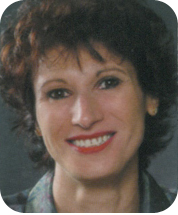Heroes of Infection Prevention 2006
- About APIC
- Vision and mission
- History
- Leadership
- Tania Bubb
- Patricia Jackson
- Lisa Sturm
- Devin Jopp
- Deborah Patterson Burdsall
- Lisa Caffery
- Jill Holdsworth
- Monika Pogorzelska-Maziarz
- Sarah Smathers
- Elizabeth R. Wallace
- Harold “Pat” Patton
- Joseph Scaletta
- Carol M. McLay
- Justin Smyer
- Mary Jo Morrison
- Paula Ann Pintar
- Stephanie Carraway
- Leadership Development
- Chapters
- Panels
- Bylaws
- Contact us
- Committees
- Awards
- Research Awards
- 2020 Research Awards
- Research Awards
- Heroes Implementation Research Scholar Award
- Heroes of Infection Prevention Award
- Heroes of Infection Prevention 2022
- Heroes of Infection Prevention 2020
- APIC 2022 Heroes Elizabeth (Beth) Richardson, MPH, MSN, RN, CIC
- APIC 2021 Heroes Khaled Alnafee
- APIC 2022 Heroes Erin Minnerath, Tiffany Martens, and Angie Silva
- APIC 2021 Heroes Lisa Sturm
- APIC 2022 Heroes Patrick Gordon, DNP, RN, CIC
- APIC 2021 Heroes Tampa General Hospital
- APIC 2022 Heroes Kelley Knapek, BSN, RN, CIC, CWON
- APIC 2021 Heroes Jeremy Gibson-Roark, Leslie Lloyd
- APIC 2022 Heroes Jodie Leonard, BS, RN, CIC
- APIC 2022 Heroes Jeffrey Miller, MD, MPH, CIC
- APIC 2020 Heroes Northside Hospital – Gwinnett Medical Center
- APIC 2020 Heroes Regions Hospital
- Heroes of Infection Prevention 2019
- APIC 2020 Heroes Kelly West and Craig Gilliam
- APIC 2020 Heroes Westchester Medical Center IPC Team
- APIC 2020 Heroes Brenda Ehlert
- APIC 2020 Heroes Emory University Hospital Midtown
- Heroes of Infection Prevention 2018
- Heroes of Infection Prevention 2017
- Heroes of Infection Prevention 2016
- Heroes of Infection Prevention 2015
- Heroes of Infection Prevention 2014
- Heroes of Infection Prevention 2013
- Heroes of Infection Prevention 2012
- Heroes of Infection Prevention 2011
- Heroes of Infection Prevention 2010
- Heroes of Infection Prevention 2009
- Heroes of Infection Prevention 2008
- Heroes of Infection Prevention 2007
- Heroes of Infection Prevention 2006
- APIC/AJIC Publication Excellence Award
- Distinguished Awards
- Chapter Awards
- Presidents’ Distinguished Service Award
- Scholarships
- Award Recipients 2019
- Awards Overview
- Membership Sections
- Corporate/System Level Director IP Section
- Oncology Section
- IP Informatics Section
- Critical Access Hospitals (CAH)
- Ambulatory Care section
- Behavioral Health section
- EMS/Public Safety section
- Home Care section
- International section
- Long-Term Acute Care (LTAC) section
- Long-Term Care (LTC) section
- Minority Health and Safety section
- Pediatrics section
- Public Health section
- Veterans’ Affairs (VA) section
- For Media
- Staff Directory
Making a Difference on Front Lines of Patient Safety

Irene Barron, RN, BA (LI), MN, CIC
King Faisal Specialist Hospital & Research Centre
Riyadh, Saudi Arabia
Irene Barron, RN, BA (LI), MN, CIC, is the infection preventionist (IP) at the King Fahad National Center for Children’s Cancer and Research (KFNCCC&R), which is part of the King Faisal Specialist Hospital and Research Centre Healthcare System (KFSH&RC) in Riyadh, Saudi Arabia.
Barron developed the infection prevention self-study module that was placed on the hospital’s computer network system so that all departments and affiliated centers may attain competency in infection control. The module was translated into Arabic to help staff with limited English proficiency attain knowledge and competency. In addition, she was chosen to develop a fully-functional infection control unit at KFNCCC&R to maintain quality standards and Joint Commission International accreditation.
Barron is a registered nurse who has worked in the field of nursing since 1982. She formerly worked at the Royal Adelaide Hospital and at the Women’s and Children’s Hospital, in Adelaide, Australia. Barron began working at KFSH&RC in 1997 as a pediatric intensive care nurse, then in 1999 as an IP.
Barron, when interviewed, was asked if practicing infection prevention in her hospital would be any different to practicing in America. She responded that “They say our hospital follows an American healthcare system,” but she also stated that “Not being an American, and not having worked in America, I cannot make a comparison, but our hospital has a strong commitment in delivering a high standard of care for the entire Kingdom, which is evident by the successful attainment of Joint Commission International accreditation, and according to the International Bone Marrow Transplantation Registry (CIBMTR) in 2003 KFSH&RC registered the highest number of transplants for that year worldwide.” She also felt that the desire to provide a “comprehensive, modern and evidence based healthcare system is the same at KFSH&RC/KFNCCC&R as it is in the west.”
Barron has worked among 60 different nationalities of which, English is the main working language. Her hospital has the latest resources and equipment available for patient care and offers varied specialties, including adult and pediatric oncology, neonatal care, obstetrics, cardiac, renal, surgical, transplant, medical and research services. As for the field of infection control, Barron said of Saudi Arabia, “I can see we have the same issues here; follow the same trends and collect the same data. Likely, there are some differences in the identification of certain infectious diseases in Saudi Arabia, compared to Australia or U.S.A., due to our location and patient population.”
When asked if the infection control profession has developed recognition of its merits in Saudi Arabia Barron stated that “At KFNCCC&R there are two IPs, while at the KFSH&RC there are five IPs and this in itself indicates how important infection prevention is considered at KFSH&RC and KFNCCC&R.”
Barron will made her first trip to America in the summer of 2006 where she attended APIC’s Annual Meeting in Tampa, Florida and said “My wish is to see more access for all IPs to conferences as both participants and attendees, and more funding be allocated for institutions with limited numbers of IPs to help fully expand and develop their role.”

